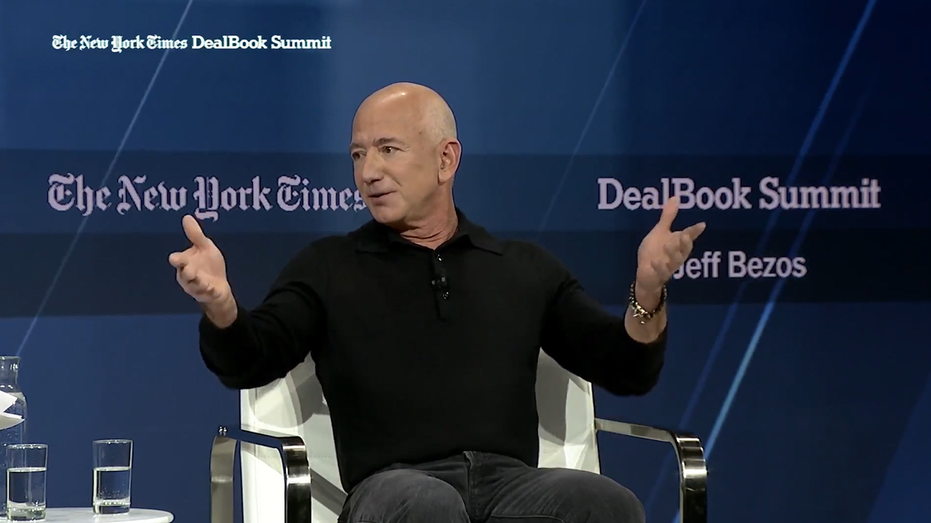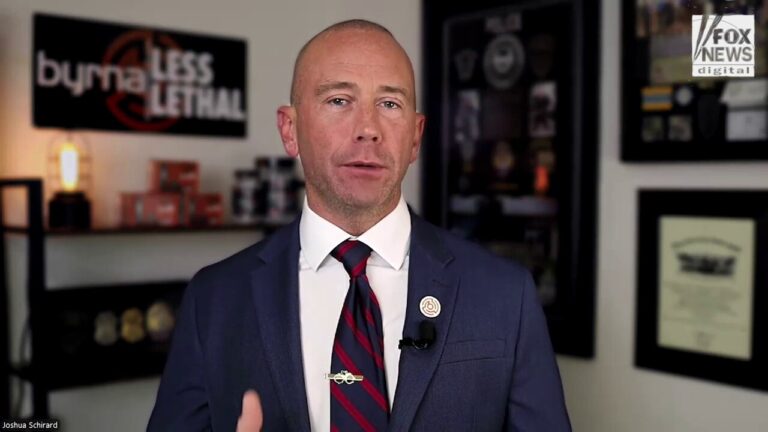
Washington Post owner Jeff Bezos defended his choice to not endorse either candidate shortly before the election, arguing it’s not the role of a new outlet to do so.
Washington Post owner Jeff Bezos defended the paper’s choice to not endorse a 2024 presidential candidate a few weeks before the election, arguing it wouldn’t have made a difference anyway.
Liberal staffers publicly condemned the decision not to endorse Vice President Kamala Harris after a draft had reportedly already been written. There were resignations from Post staffers and editorial board members, a mass exodus of subscribers and Bezos even had to defend the “principled decision” in a rare op-ed.
Bezos was asked about the decision on Wednesday as he was interviewed by New York Times columnist Andrew Ross Sorkin at DealBook Summit 2024.
After recalling the history of The Post, citing how the organization historically did not endorse candidates up until after Watergate, he explained, “We just decided that, you know, it wasn’t going to help … it wasn’t going to influence the election either way.”
“There’s no evidence that newspaper endorsements influence elections,” Bezos said. “No independent voter in Pennsylvania at that time was gonna say, ‘Oh! Is that what the Washington Post thinks? Well, then I’ll do that.’ So that wasn’t going to happen.”
“We just decided that the pluses of [an endorsement] were very small and it added to the perception of bias,” he continued. “At the same time, you know, we’re struggling with the issue that all traditional media is struggling with, which is a very difficult and significant loss of trust.”
He said the media not only has to be accurate, but the people have to believe it’s accurate.
Sorkin read particularly scathing rebukes of the non-endorsement from former Post executive editor Marty Baron and journalist David Remnick, but Bezos stood his ground.
“We made this decision, it was the right decision. I’m proud of the decision we made, and it was far from cowardly because we knew there would be blowback, and we did the right thing anyway,” he said.
Sorkin proceeded to bring up the backlash, such as 250,000 people canceling their subscriptions, asking if Bezos’ attempt to restore trust in the media had backfired and instead made them more wary of it.
“No, I don’t follow that logic,” Bezos said, later adding that he was not surprised by the backlash. “You can’t do the wrong thing because you’re worried about bad PR or whatever it is you want to call it. This was the right decision. We made the right decision. I’m very proud of that decision.”
When Bezos expressed his optimism about Trump’s next presidency, Sorkin pressed him about the president-elect’s contentious relationship with the media, having referred to them as the “enemy.”
“I’m going to try to talk him out of that idea. I don’t think the press is the enemy. And I don’t think, you know, he’s also… You’ve probably grown in the last two years. He has, too. Like, it’s, you know, this is not the case. The press is not the enemy,” Bezos said.
He later added, “Let’s go persuade him of this. You and I should go. Let’s go talk to him.”
